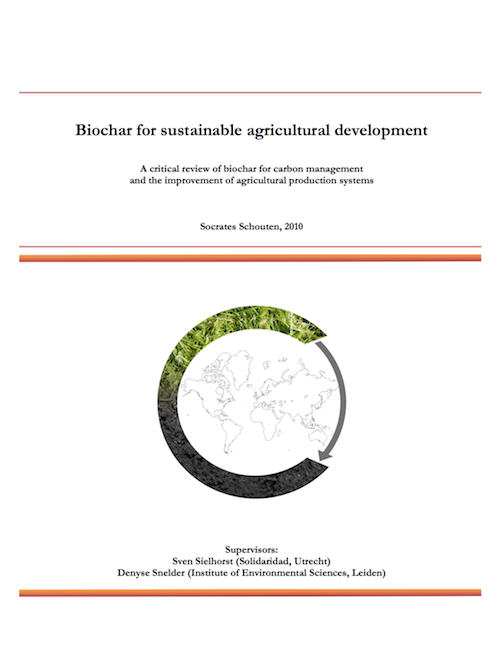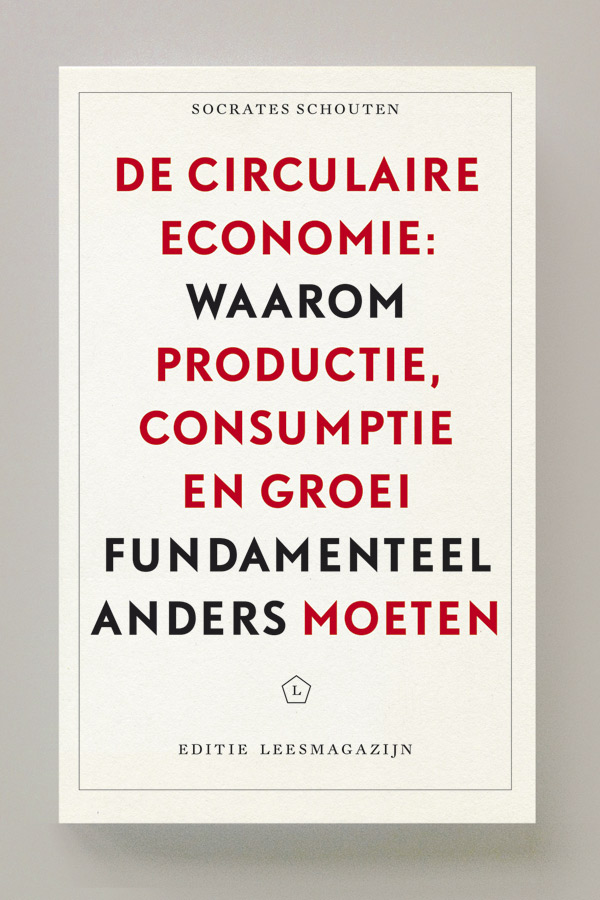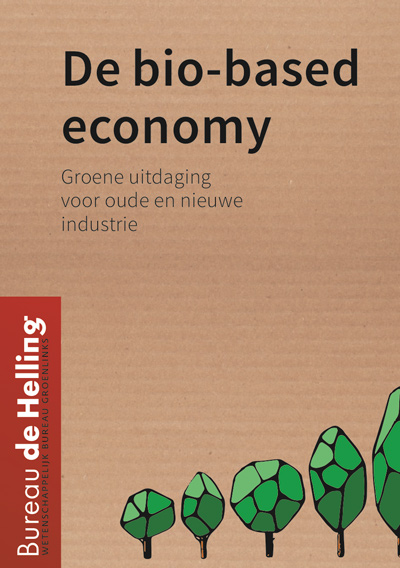“Bioenergy from cattle manure?”, Global Change Biology: Bioenergy, 2012
Cattle manure can be processed to produce bioenergy, resulting in by-products with different physicochemical characteristics. To evaluate whether application of such bioenergy by-products to soils would be beneficial com- pared with their unprocessed counterpart, we quantified differences in greenhouse gas emissions and carbon (C) and nitrogen (N) dynamics in soil.
 Biochar for sustainable agricultural development (Solidaridad, 2010)
Biochar for sustainable agricultural development (Solidaridad, 2010)
The demand for agricultural products is deemed to increase greatly in the coming decades, not only for food, but also for production of alternatives for fossil fuels. Soil degradation is already a widespread phenomenon that troubles food production and depresses agricultural incomes and rural livelihoods. Biochar is a substance that has been shown to have multiple benefits to crop production and increasing the efficiency of inputs. Biochar may thus contribute to development in the global South, but the current agenda may prove to be inadequate.
Resilience: the philosophy of agro-ecological leeway (2009)
The Green Revolution has imposed a high-input-high-output paradigm that reveals its flaws especially in fragile, instable ecological areas where it is ecologically and economically untenable. Agroecology is a strategy with a range of techniques that may both revitalize or improve marginal agriculture and bring ecology back to intensified, high-input agriculture. The concept of ‘resilience’ may act as an important and potent framework to this end.
Publications in Dutch

De circulaire economie. Waarom productie, consumptie en groei fundamenteel anders moeten (Leesmagazijn, March 2016)
(The circular economy. Why production, consumption and growth should change fundamentally)
The idea of the circular economy is rapidly becoming popular among citizens, companies and governments. Finally there seems to be a way that allows the economy to keep growing while becoming sustainable and green. The promise will not be easily fulfilled, however. If we are to create a sustainable economy that keeps its nourishing grounds in good health, the economic system will need immense reform. The gap between producers and consumers, that has been widening during two centuries of fossil fuel based growth, will have to shrink in the coming decades. The circular economy could be the model with which to achieve this, but only if systems of value creation are addressed fundamentally and concerns of ownership, incentives and governance are not overlooked. This book analyses the many aspects and possibilities of the circular economy and proposes new roles for the government, companies and individuals.
Het dilemma van ‘data delen’ in de bio-based economy (Amsterdam Economic Board, Nov. 2014)
(The dilemma of ‘sharing data’ in the bio-based economy)
Report for the Amsterdam Economic Board. Much research has been done on the availability and volume of organic waste and residual streams in the Netherlands. However, the information fails to find its way into clear, public overviews. The authors analysed why the data and other research results, often the fruits of public funding, stay behind closed doors. The report advocates an ‘open’ bio-based economy and provides recommendations to overcome common hurdles.
 De bio-based economy: Groene uitdaging voor oude en nieuwe industrie (Bas Eickhout en Socrates Schouten, Bureau de Helling, Nov. 2013)
De bio-based economy: Groene uitdaging voor oude en nieuwe industrie (Bas Eickhout en Socrates Schouten, Bureau de Helling, Nov. 2013)
(The bio-based economy. Green challenge for old and new industries)
The future is to the bio-based economy. A society that looks beyond finite fossil resources and develops crops and algae as feedstock for the economy instead. However, new concerns over ecosystems, nutrients and the climate rise when the bio-based transition takes off. Similarly, existing patterns of power concentration and conflict are not necessarily overcome and might even get worse. In this publication, GroenLinks Europe and Bureau de Helling provide an extensive overview of the possibilities and risks of a bio-based economy.